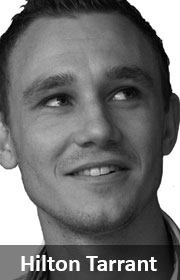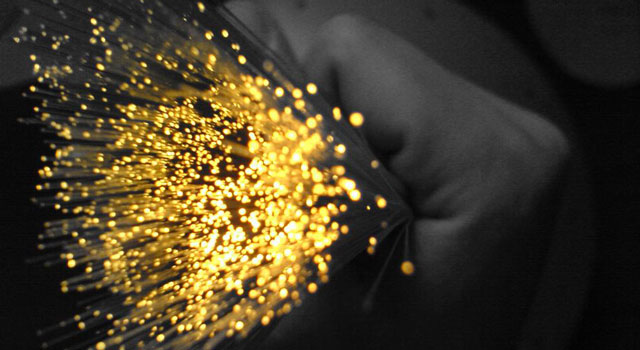 Internet Solutions (IS) is, according to Bloomberg, in talks to buy Dark Fibre Africa (DFA) from Remgro, majority owner (51%) of DFA-parent Community Investment Ventures.
Internet Solutions (IS) is, according to Bloomberg, in talks to buy Dark Fibre Africa (DFA) from Remgro, majority owner (51%) of DFA-parent Community Investment Ventures.
The report last week suggested that the sellers want as much as R10bn for the fibre network operator.
But why would IS, which is owned by Nippon Telegraph and Telephone subsidiary Dimension Data, want to own a metropolitan fibre network?
For a start, in a mobile-first, cloud-first world, high-speed fibre connectivity is gold. And the rush to blanket (and connect) as much of the world with fibre is this century’s gold rush. In South Africa, there are few networks that rival DFA’s.
Telkom — primarily via subsidiary Openserve — leads the way with somewhere north of 150 000km of fibre in the ground (the most recent publicly disclosed figure is more than two years old). Vodacom and MTN have decent fibre footprints in some metro areas, but these are likely in the low single digit thousands of kilometres in length (neither discloses this data).
On the face of it, Neotel’s network is impressive, but more than half of it comprises long-haul routes (mostly bought from Transtel). In metro areas, DFA’s footprint is more extensive. That said, Neotel’s network (and access to scarce wireless spectrum) was attractive enough for Vodacom to try buy it for R7bn in 2014. The deal dragged on for two years and was eventually dropped by Vodacom, which cited regulatory hurdles (an alleged bribery scandal involving Neotel and Transnet certainly didn’t help).
It is important to note that DFA is primarily a wholesaler: it is a network provider to the other networks. And, in many ways, its metro footprint is the final piece in the puzzle IS has been quietly assembling.
It is already a co-owner, along with Convergence Partners and Cell C, in FibreCo, which has built a 4 000km (mostly long-haul) network connecting Johannesburg, Bloemfontein, Cape Town, Port Elizabeth, East London and Durban. That gives it a national footprint.
IS is strong in the enterprise space and its unexpected move in December to buy MWeb from Naspers means it now owns one of the country’s largest consumer Internet service providers, too.
An acquisition of DFA means it would have few rivals, bar Telkom, in terms of scale (and telecoms is, of course, a scale game). In the past two years, DFA increased the size of its network by a fifth and will almost certainly cross the 10 000km mark this calendar year.
Its networks in Gauteng (Johannesburg, Midrand, Centurion and Pretoria), Cape Town and Durban are industry leading and, in recent years, DFA has expanded into 21 smaller metros, including East London, Polokwane, Tlokwe (Potschefstroom), Emalahleni, George and Pietermaritzburg.
Not only does DFA have an extensive network, it has a good business, too. In the six months to September 2016, it reported revenue of R734m, an increase of nearly 40% on the year prior. It will certainly exceed R1,5bn for the full year to March 2017.
Earnings before interest, tax, depreciation and amortisation for the six months was R495m (42,7% higher) and this will top R1bn for the year. By definition, depreciation charges in a business such as this are high.
But, arguably, the most attractive part of this business is the fact that is has such a strong annuity revenue base. As at end-September, annuity income was R101m/month (by comparison, in 2014 annuity income was R55m/month). It reported a future value of its current annuity contract base in excess of R18bn in September.

Mobile data has been driving much of this demand for fibre since 2015, and as at September 2015, it had connected 7 878 base station sites for three of the four mobile operators (believed to be Vodacom, MTN and Cell C). In 2015, it said the “next growth drivers for DFA will be the enterprise market and the public sector, which have shown a definite increase in demand in the last twelve months”.
It bought last mile build specialist Conduct Telecommunications in 2014 which helped it to “reduce the risk of … slow last-mile roll-out”. This enabled it to aggressively pursue the fibre-to-the-business market. It is part of a consortium linking Gauteng government building and schools with fibre and also won a R200m tender to roll out fibre for the City of Ekurhuleni.
The Bloomberg report, which cites three people familiar with the matter, says “the deal, which is still being negotiated, values Dark Fibre at as much as 10 times Ebitda”. That squares with the R1bn Ebitda run-rate DFA is on, based on its first-half numbers. The book value of DFA’s network, as per Remgro, was R7,4bn as at September 2016 (versus R4,6bn two years prior).
One would imagine Vodacom and MTN have surely run the numbers and had a look at DFA. They’d both know this business very well (plus Vodacom parent Vodafone did a similar deal in the UK with the 2012 takeover of Cable & Wireless Worldwide). Is IS the only realistic buyer? Thing is, there aren’t too many others who’d be able to afford an acquisition of this scale.
- Hilton Tarrant works at immedia
- This column was first published on Moneyweb and is used here with permission




